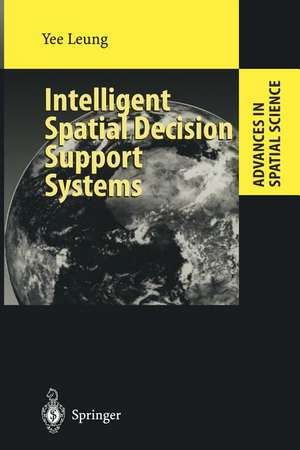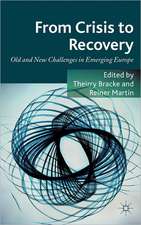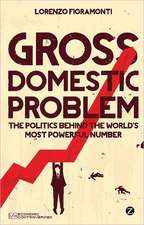Intelligent Spatial Decision Support Systems: Advances in Spatial Science
Autor Yee Leungen Limba Engleză Paperback – 22 sep 2011
Din seria Advances in Spatial Science
- 18%
 Preț: 956.81 lei
Preț: 956.81 lei -
 Preț: 368.91 lei
Preț: 368.91 lei - 18%
 Preț: 948.16 lei
Preț: 948.16 lei - 18%
 Preț: 963.47 lei
Preț: 963.47 lei - 18%
 Preț: 947.67 lei
Preț: 947.67 lei - 18%
 Preț: 940.72 lei
Preț: 940.72 lei - 18%
 Preț: 954.45 lei
Preț: 954.45 lei - 15%
 Preț: 646.62 lei
Preț: 646.62 lei - 18%
 Preț: 959.50 lei
Preț: 959.50 lei - 18%
 Preț: 956.33 lei
Preț: 956.33 lei - 18%
 Preț: 949.23 lei
Preț: 949.23 lei - 15%
 Preț: 646.75 lei
Preț: 646.75 lei - 15%
 Preț: 643.99 lei
Preț: 643.99 lei - 18%
 Preț: 955.40 lei
Preț: 955.40 lei - 15%
 Preț: 643.00 lei
Preț: 643.00 lei - 15%
 Preț: 644.49 lei
Preț: 644.49 lei - 18%
 Preț: 953.35 lei
Preț: 953.35 lei - 18%
 Preț: 956.03 lei
Preț: 956.03 lei - 15%
 Preț: 647.27 lei
Preț: 647.27 lei - 15%
 Preț: 638.24 lei
Preț: 638.24 lei - 18%
 Preț: 961.23 lei
Preț: 961.23 lei - 18%
 Preț: 954.93 lei
Preț: 954.93 lei - 15%
 Preț: 643.48 lei
Preț: 643.48 lei - 15%
 Preț: 650.86 lei
Preț: 650.86 lei - 18%
 Preț: 955.70 lei
Preț: 955.70 lei - 15%
 Preț: 650.04 lei
Preț: 650.04 lei - 15%
 Preț: 648.42 lei
Preț: 648.42 lei - 18%
 Preț: 949.42 lei
Preț: 949.42 lei - 18%
 Preț: 960.30 lei
Preț: 960.30 lei - 18%
 Preț: 948.29 lei
Preț: 948.29 lei - 18%
 Preț: 958.07 lei
Preț: 958.07 lei - 18%
 Preț: 950.66 lei
Preț: 950.66 lei - 18%
 Preț: 956.03 lei
Preț: 956.03 lei - 15%
 Preț: 643.65 lei
Preț: 643.65 lei - 18%
 Preț: 956.99 lei
Preț: 956.99 lei - 18%
 Preț: 958.73 lei
Preț: 958.73 lei - 18%
 Preț: 959.98 lei
Preț: 959.98 lei - 18%
 Preț: 952.40 lei
Preț: 952.40 lei - 15%
 Preț: 643.00 lei
Preț: 643.00 lei
Preț: 649.87 lei
Preț vechi: 764.55 lei
-15% Nou
Puncte Express: 975
Preț estimativ în valută:
124.41€ • 129.81$ • 104.29£
124.41€ • 129.81$ • 104.29£
Carte tipărită la comandă
Livrare economică 12-26 martie
Preluare comenzi: 021 569.72.76
Specificații
ISBN-13: 9783642645211
ISBN-10: 3642645216
Pagini: 492
Ilustrații: XV, 470 p.
Dimensiuni: 155 x 235 x 26 mm
Greutate: 0.68 kg
Ediția:Softcover reprint of the original 1st ed. 1997
Editura: Springer Berlin, Heidelberg
Colecția Springer
Seria Advances in Spatial Science
Locul publicării:Berlin, Heidelberg, Germany
ISBN-10: 3642645216
Pagini: 492
Ilustrații: XV, 470 p.
Dimensiuni: 155 x 235 x 26 mm
Greutate: 0.68 kg
Ediția:Softcover reprint of the original 1st ed. 1997
Editura: Springer Berlin, Heidelberg
Colecția Springer
Seria Advances in Spatial Science
Locul publicării:Berlin, Heidelberg, Germany
Public țintă
ResearchCuprins
1 Introduction.- 1.1 On Complexity of Spatial Decision Making.- 1.2 Basic Notions of Spatial Decision Support Systems.- 1.3 A General Architecture for Intelligent Spatial Decision Support Systems.- 1.4 Purpose and Structure of the Monograph.- 2 Symbolic Approaches to Spatial Knowledge Representation and Inference.- 2.1 A Note on Knowledge Representation and Inference.- 2.2 Propositional and Predicate Logic.- 2.3 Production Systems.- 2.4 Semantic Networks.- 2.5 Frames.- 2.6 Object-Oriented Approach.- 2.7 A Note on Hybrid Representations.- 3 Fuzzy Logic Approaches to Spatial Knowledge Representation and Inference.- 3.1 A Note on Fuzzy Logic.- 3.2 Fuzzy Propositions.- 3.3 Fuzzy IF-THEN Propositions and their Translations.- 3.4 Fuzzy Inference.- 3.5 Linguistic Approximation in Fuzzy Inference.- 3.6 Fuzzy Rule-Based Inference Requiring Precise Output.- 4 Management of Uncertainty in Knowledge Representation and Inference.- 4.1 On Measures of Confidence.- 4.2 Probabilistic Approaches.- 4.3 Certainty Factor.- 4.4 Shafer-Dempster’s Belief Functions.- 4.5 Possibility-Necessity Approach.- 4.6 A Note on the Theory of Inclusion.- 5 Neural Network Approaches to Spatial Knowledge Representation and Inference.- 5.1 A Remark on Symbolic and Neural Network Approaches to Knowledge Representation and Inference.- 5.2 A Brief Review of Neural Networks Research.- 5.3 Spatial Knowledge Representation and Inference by Feedforward Neural Networks.- 5.4 Spatial Knowledge Representation and Inference by Recurrent Neural Networks.- 5.5 A Note on Hybrid Spatial Decision Support Systems.- 6 Knowledge Acquisition for Spatial Inference — The Case of Genetic Algorithms.- 6.1 The Necessity of Automatic Knowledge Acquisition.- 6.2 A Brief Note on Genetic Algorithms.- 6.3 A Formalism of CanonicalGenetic Algorithms.- 6.4 Rule Learning Using Genetic Algorithms.- 6.5 Evolving Neural Networks Using Genetic Algorithms.- 6.6 A Remark on Genetic Algorithms.- 7 Spatial Data Models and Data Structures.- 7.1 A Note on Data Models and Data Structures.- 7.2 Spatial Data Models and Data Structures within the Layer-Viewed Framework.- 7.3 Relational Database for Precise Data.- 7.4 Fuzzy Relational Model and Database.- 7.5 Issues of Spatial Database Accuracy.- 7.6 Spatial Data Models and Data Structures within the Object-Viewed Framework.- 8 Management of Models in Spatial Decision Support Systems.- 8.1 The Necessity of a Systematic Management of Models in Spatial Decision Support Systems.- 8.2 Model Classification and Organization.- 8.3 Model-Data Linkage — Spatial Network Analysis as a Case Study.- 9 An Expert System Shell for Building Spatial-Decision- Support-System Development Tool.- 9.1 On the Architecture of a Spatial-Decision-Support-System Development Tool.- 9.2 The Fuzzy-Logic-Based Expert System Shell (FLESS) — The Nerve Center of the Spatial-Decision-Support-System Development Tool.- 9.3 Equipping FLESS with Automatic Knowledge-Acquisition Capabilities.- 9.4 Application of FLESS in Building Expert Systems for Spatial Classification Problems.- 10 A Spatial Decision Support System for Flood Simulation and Damage Assessment Using FLESS.- 10.1 History of Flooding in Sun Hugou Watershed.- 10.2 Overall Design of the Flood Simulation and Damage Assessment Process.- 10.3 The Flood Simulation and Damage Assessment Decision Support System.- 11 An Object-Oriented Expert System Shell for Building Spatial Decision Support Systems.- 11.1 A Note on Object-Oriented Approach to Integrative Spatial Decision Support Systems.- 11.2 The Architecture of an Object-Oriented ExpertSystem Shell for Spatial Inference.- 11.3 An Expert System for Solving Hierarchical Programming Problems.- 11.4 A Pedagogic Example.- 12 Conclusion.- 12.1 Summary.- 12.2 Outlook and Research Directions.- References.- List of Figures.- List of Tables.















